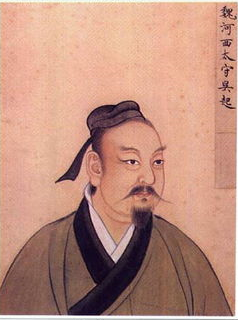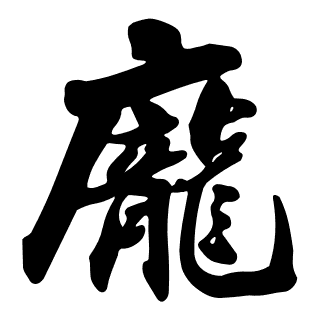Warring States may refer to:
Warring States may refer to:

The history of China spans several millennia across a wide geographical area. Each region now considered part of the Chinese world has experienced periods of unity, fracture, prosperity, and strife. Chinese civilization first emerged in the Yellow River valley, which along with the Yangtze basin constitutes the geographic core of the Chinese cultural sphere. China maintains a rich diversity of ethnic and linguistic people groups. The traditional lens for viewing Chinese history is the dynastic cycle: imperial dynasties rise and fall, and are ascribed certain achievements. Throughout pervades the narrative that Chinese civilization can be traced as an unbroken thread many thousands of years into the past, making it one of the cradles of civilization. At various times, states representative of a dominant Chinese culture have directly controlled areas stretching as far west as the Tian Shan, the Tarim Basin, and the Himalayas, as far north as the Sayan Mountains, and as far south as the delta of the Red River.
Qin may refer to:
Han may refer to:
Wei or WEI may refer to:
Tang or TANG most often refers to:
Dai may refer to:
Zhang Yi may refer to:
Civil War may refer to:

The Seven Warring States or Seven Kingdoms were the seven leading hegemonic states during the Warring States period of Ancient China:

The Wuzi is a classic Chinese work on military strategy attributed to Wu Qi. It is considered one of China's Seven Military Classics.
Fàn is a Chinese family name. It is also one of the most common surnames in Vietnam, where it is written as Pham, and occurs in Korea as Beom. It is the 46th name on the Hundred Family Surnames poem in Chinese.
Cui, alternatively spelled Tsui or Tsway, is one of the 80 most common surnames in China, with around 0.28% of the Chinese population having the surname. It is also one of the most common surnames in Korea, with around 4.7% of the population having the surname in South Korea.
Shan is a Chinese surname. The origin of this surname is not clear. One explanation is that it came from Shan County in Shandong province. Another possible origin involves King Cheng of Zhou's youngest son's acquisition of the name when he was given what would become the Shan state when the enfeoffment system was enacted during the Zhou dynasty. The Shan state existed for a few hundred years before it was annexed by a stronger neighbouring state. It was located in present-day Jiyuan, Henan province. Although the surname comes from the place name, the Shan family was a branch of the royal family of the Zhou dynasty. Its ancient origin determines its rareness and not many people have the Shan surname. According to one unverifiable estimate, about 150,000 people are of the surname.

Pang is a Chinese surname. It is romanized Pong in Cantonese. In Vietnam, this surname is written in Quốc Ngữ as Bàng. "Pang" is also the Cantonese romanization of another Chinese surname Peng.

Ruan is a Chinese surname.

The history of games dates to the ancient human past. Games are an integral part of all cultures and are one of the oldest forms of human social interaction. Games are formalized expressions of play which allow people to go beyond immediate imagination and direct physical activity. Common features of games include uncertainty of outcome, agreed upon rules, competition, separate place and time, elements of fiction, elements of chance, prescribed goals and personal enjoyment.
The East Is Red may refer to:

Tián, or T'ien in Wade-Giles is a Chinese surname. An alternative transliteration of "田" from Cantonese is Tin, from Hokkien is Thinn. It appeared in the Hundred Family Surnames text from the early Song Dynasty. It also means "field". In 2019 it was the 34th most common surname in Mainland China.
The Chinese Civil War was a conflict from 1927–36 and 1946–50.

The Chinese surname 魯 is listed 49th in the Song dynasty classic text Hundred Family Surnames. As of 2008, 魯 is the 115th most common surname in China.